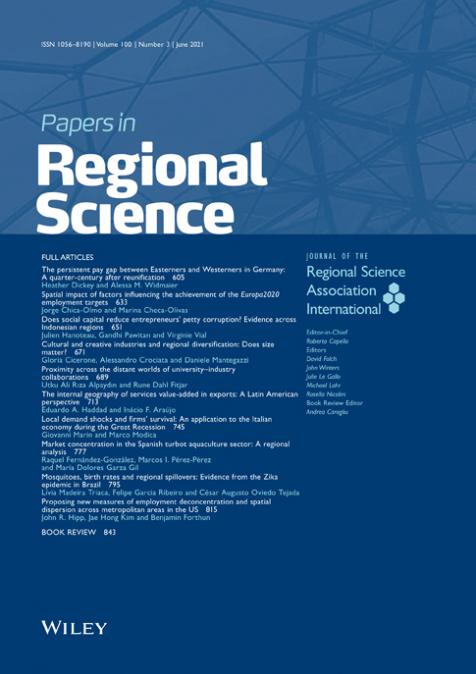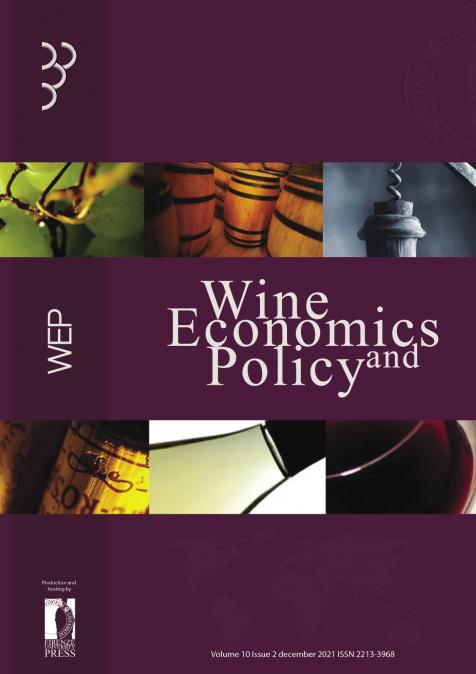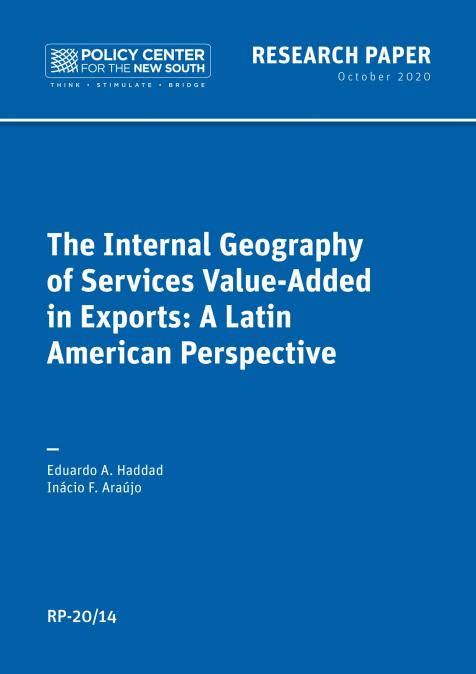When this interview was recorded, Argentina had just sworn in a new president of the Nation, raising many questions about the political future of the South American country. The freshly installed Head of State had led a peculiar campaign, had promised to slash government spending, in a country where half the population receives support from the State. His radical rhetoric against the political elite had galvanized the youth, but also contributed to stoke fear on the future of democracy in Argentina. In this interview, Camila Crescimbeni, former MP and member of the ADEL 2023 cohort, answered questions on her own political engagement and on her perception of what the close future of Argentina might look like.
RELATED CONTENT
-
 AuthorsDecember 23, 2020This article was originally published on Bruegel A recovery from the COVID-19 recession is underway though the suffering is far from over, especially for the most vulnerable. Inequality is both a consequence of the pandemic and a cause of its severity. Many countries need comprehensive policy change to address its worst effects. At the end of a tragic year marked by pandemic and increased poverty, the miraculously rapid arrival of vaccines stirs great hope. The COVID-19 recession ...
AuthorsDecember 23, 2020This article was originally published on Bruegel A recovery from the COVID-19 recession is underway though the suffering is far from over, especially for the most vulnerable. Inequality is both a consequence of the pandemic and a cause of its severity. Many countries need comprehensive policy change to address its worst effects. At the end of a tragic year marked by pandemic and increased poverty, the miraculously rapid arrival of vaccines stirs great hope. The COVID-19 recession ... -
December 23, 2020América Latina está inmersa en una nueva realidad mundial: la convivencia diaria con la pandemia de Covid-19, que ha causado a esta región una de las tasas de mortalidad más altas del mundo. También se enfrenta a una crisis humanitaria cuyas causas son varias, aunque destacan la inestab...
-
 AuthorsInácio F. AraújoDecember 18, 2020We estimate the contents of services value-added incorporated in goods exports in different countries in Latin America, exploring the local dimension of the results. We use inter-regional input–output analysis to trace and map domestic value-added embedded in those countries' exports. We add to the discussion of global value chains the internal, within-country geography of trade in value-added, since the set of locational preferences that help understanding the spatial patterns of n ...
AuthorsInácio F. AraújoDecember 18, 2020We estimate the contents of services value-added incorporated in goods exports in different countries in Latin America, exploring the local dimension of the results. We use inter-regional input–output analysis to trace and map domestic value-added embedded in those countries' exports. We add to the discussion of global value chains the internal, within-country geography of trade in value-added, since the set of locational preferences that help understanding the spatial patterns of n ... -
AuthorsDecember 17, 2020Brazil is one of the countries hardest hit by COVID-19. Apart from the dramatic health implications, COVID-19 will also scar the Brazilian economy, including through a jump in its already high public-sector debt-to-GDP ratio in 2020. Moving forward—or not—with structural reforms aimed at lifting private investment will define whether a sustainableor unsustainable—growth-cum-debt trajectory will prevail in the next decade. The extent to which Brazil regains its attractiveness for for ...
-
-
 AuthorsDecember 14, 2020This article has originally been published on OECD Development matter platform Many donor countries seem eager to see middle-income countries (MICs) “master out” and graduate to a non-client status in multilateral development institutions before fully achieving their development potential. We argue that such institutions can still significantly contribute to the sustainable development of MICs, while also seizing many benefits from this relationship (Middle income countries and mul ...
AuthorsDecember 14, 2020This article has originally been published on OECD Development matter platform Many donor countries seem eager to see middle-income countries (MICs) “master out” and graduate to a non-client status in multilateral development institutions before fully achieving their development potential. We argue that such institutions can still significantly contribute to the sustainable development of MICs, while also seizing many benefits from this relationship (Middle income countries and mul ... -
 AuthorsNovember 23, 2020Short-term climate conditions may affect crop yields and vintage quality and, as a consequence, wine prices and vineyards’ earnings. In this paper, we use a Computable General Equilibrium (CGE) model for Chile, which incorporates very detailed information about the value chain of the wine sector in the country. Using information for the 2015-2016 harvest, we calibrate climate variability shocks associated with a “bad year” for the wine industry in Chile, when premature rains occurre ...
AuthorsNovember 23, 2020Short-term climate conditions may affect crop yields and vintage quality and, as a consequence, wine prices and vineyards’ earnings. In this paper, we use a Computable General Equilibrium (CGE) model for Chile, which incorporates very detailed information about the value chain of the wine sector in the country. Using information for the 2015-2016 harvest, we calibrate climate variability shocks associated with a “bad year” for the wine industry in Chile, when premature rains occurre ... -
AuthorsInácio F. AraújoOctober 27, 2020We estimate the contents of services value-added incorporated in goods exports in different countries in Latin America, exploring the local dimension of the results. We use inter-regional input-output analysis to trace and map domestic value-added embedded in those countries’ exports. We add to the discussion of global value chains the internal, withincountry geography of trade in value-added, since the set of locational preferences that help understanding the spatial patterns of na ...
-
September 23, 2020Latin America is immersed in a new world reality: the daily coexistence with the COVID-19 pandemic, the latter inflicting on this region some of the highest death rates in the world. It is facing a humanitarian crisis borne out of several factors, mainly: political instability, social u...
-
 AuthorsSeptember 11, 2020Latin American and Caribbean economies need help, but organizations like the IDB are also stretched thin. First appeared at Americas Quarterly With Latin America and the Caribbean potentially facing years of difficulties due to the pandemic and related economic crises, attention has shifted to what multilateral institutions like the International Monetary Fund (IMF) might do to help. There’s no doubt they can play a crucial role in preventing another lost decade in the region. But ...
AuthorsSeptember 11, 2020Latin American and Caribbean economies need help, but organizations like the IDB are also stretched thin. First appeared at Americas Quarterly With Latin America and the Caribbean potentially facing years of difficulties due to the pandemic and related economic crises, attention has shifted to what multilateral institutions like the International Monetary Fund (IMF) might do to help. There’s no doubt they can play a crucial role in preventing another lost decade in the region. But ...




